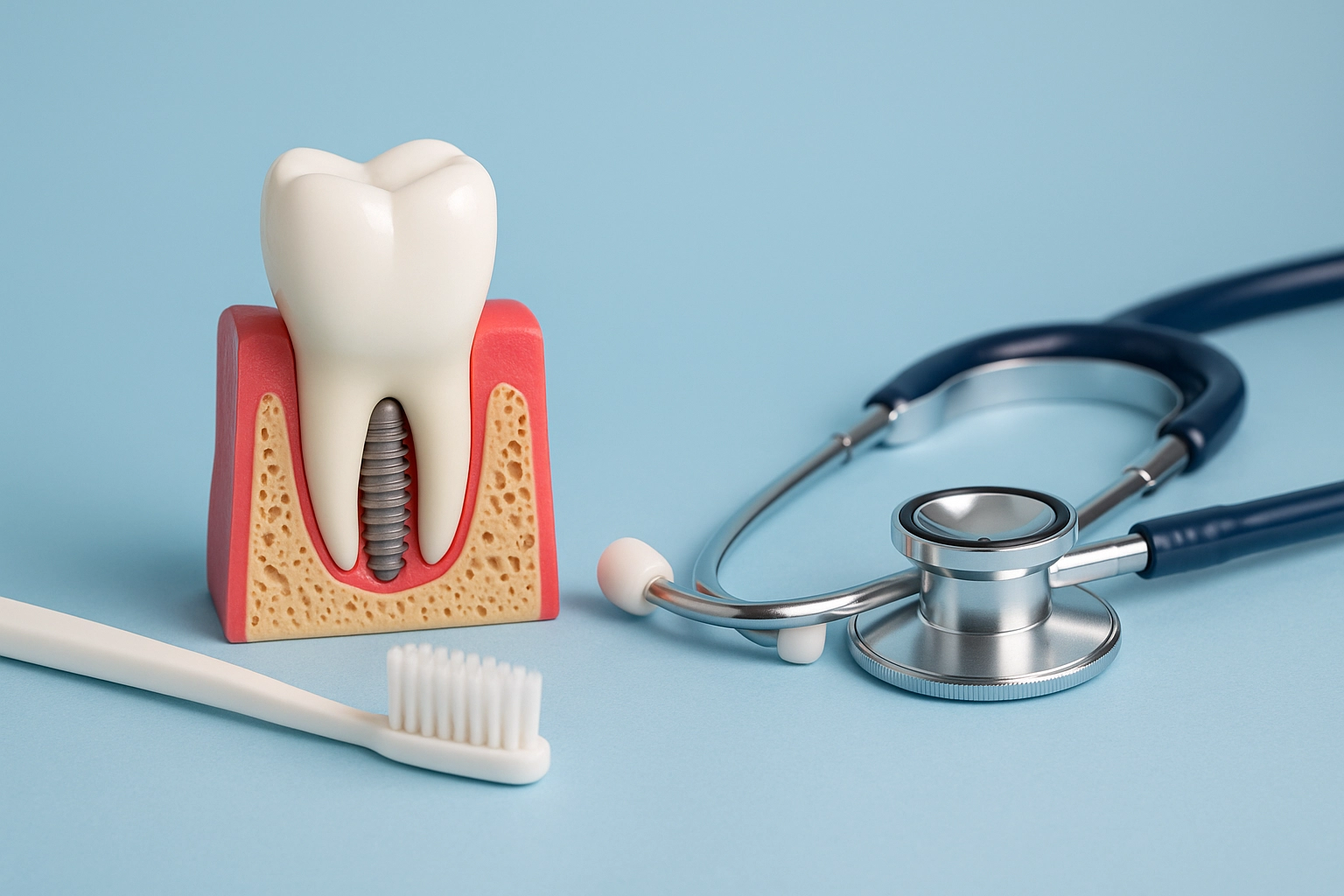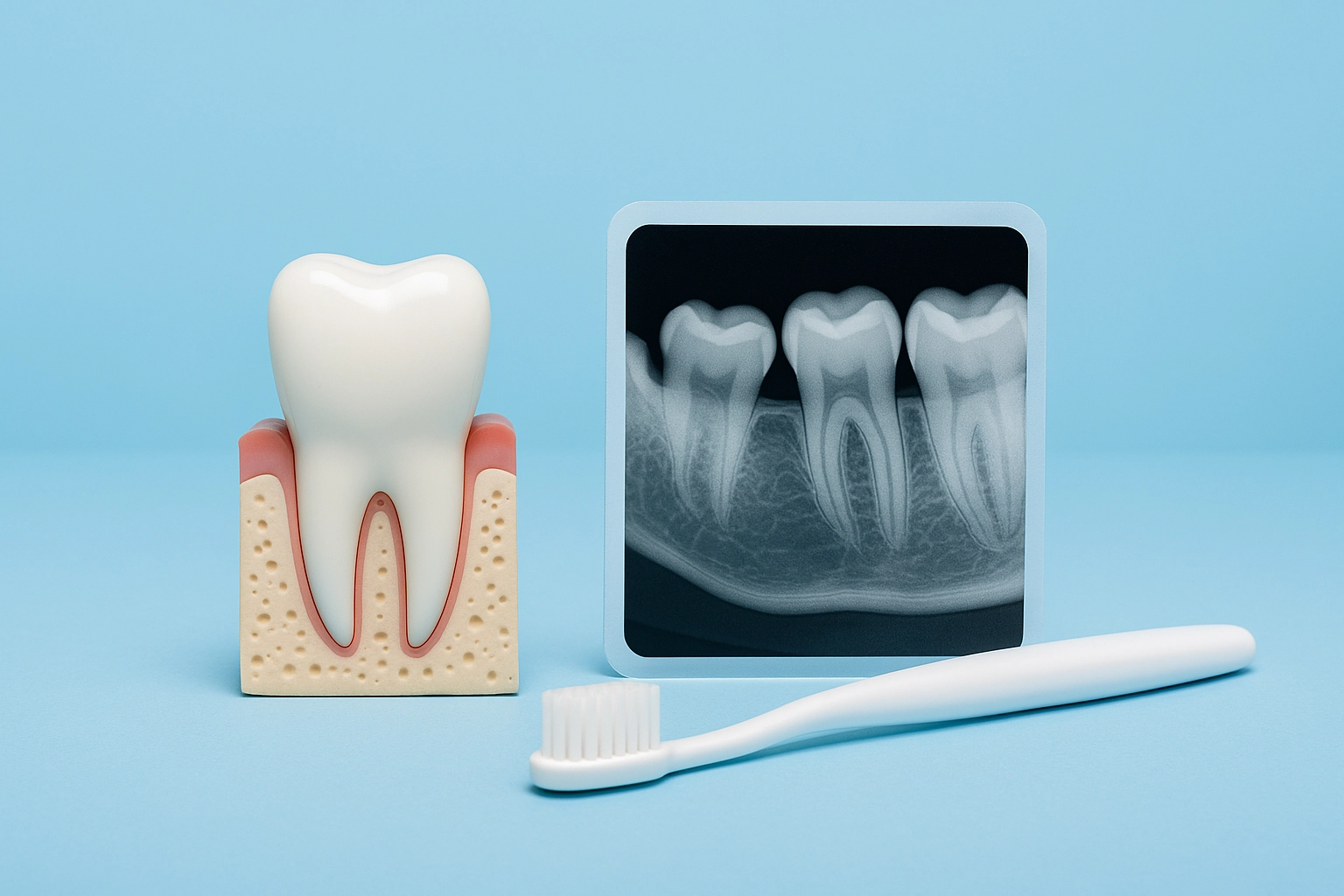
Do I Need Dental Implants in Sussex? Things You Need to Consider
Dental implants have revolutionized the field of restorative dentistry, offering a durable and aesthetically pleasing solution for replacing missing teeth. At Brighton Implant Clinic, we specialize in providing state-of-the-art dental implant treatments tailored to individual needs. Dental implants are titanium posts surgically placed into the jawbone, serving as artificial tooth roots that support crowns, bridges, or dentures. This integration with the bone, known as osseointegration, ensures stability and functionality comparable to natural teeth.
The concept of dental implants dates back to the 1950s when Professor Per-Ingvar Brånemark discovered the osseointegration process. Since then, advancements in materials and techniques have significantly improved success rates and patient outcomes. Modern implants boast success rates of up to 98%, making them a reliable option for tooth replacement.
At Brighton Implant Clinic, our team of experienced professionals utilizes cutting-edge technology to ensure precise implant placement and optimal results. Whether you're missing a single tooth or require a full-mouth restoration, dental implants can restore your smile and confidence.
Assessing Your Need for Dental Implants
Determining whether you need dental implants involves evaluating several factors related to your oral health and personal preferences. Common reasons for considering dental implants include:
- Missing Teeth: Dental implants are an effective solution for replacing one or more missing teeth, preventing adjacent teeth from shifting and maintaining proper bite alignment.
- Damaged or Decayed Teeth: Teeth that are severely damaged or decayed beyond repair may require extraction and replacement with implants to restore function and appearance.
- Unstable Dentures: For individuals experiencing discomfort or instability with removable dentures, implant-supported dentures offer enhanced stability and comfort.
- Bone Loss Prevention: Implants stimulate the jawbone, preventing the bone loss that typically occurs after tooth loss.
A comprehensive dental evaluation, including imaging and assessment of your medical history, is essential to determine your candidacy for dental implants. At Brighton Implant Clinic, we conduct thorough assessments to develop personalized treatment plans that address your specific needs.
Evaluating Oral and Overall Health

Successful dental implant placement requires adequate oral and overall health. Key considerations include:
- Gum Health: Healthy gums are crucial for supporting dental implants. Conditions like periodontal disease must be treated before implant placement.
- Bone Density: Sufficient jawbone density is necessary to anchor the implant securely. In cases of bone loss, procedures like bone grafting may be recommended to augment the bone.
- Systemic Health Conditions: Chronic conditions such as diabetes or osteoporosis can affect healing and implant success. It's important to manage these conditions effectively and discuss them with your dentist.
- Lifestyle Factors: Smoking and poor oral hygiene can impede healing and increase the risk of implant failure. Commitment to maintaining good oral hygiene and lifestyle modifications are essential for long-term success.
Our team at Brighton Implant Clinic works closely with patients to address these factors, ensuring the best possible outcomes for implant procedures.
Exploring Types of Dental Implants
Dental implants come in various types to accommodate different needs:
- Single-Tooth Implants: Ideal for replacing a single missing tooth, this involves placing one implant and attaching a crown.
- Implant-Supported Bridges: Used when multiple adjacent teeth are missing, implants support a bridge, eliminating the need to alter neighboring healthy teeth.
- Full-Arch Restorations (All-on-4): This technique uses four strategically placed implants to support a full arch of teeth, offering a fixed and stable solution for complete tooth loss.
- Zygomatic Implants: For patients with significant bone loss in the upper jaw, zygomatic implants anchor into the cheekbone, bypassing the need for bone grafting.
Our specialists at Brighton Implant Clinic assess each case individually to recommend the most suitable implant type, ensuring optimal function and aesthetics.
Understanding the Implant Procedure - 4 Key Steps
The dental implant procedure involves several stages:
- Initial Consultation and Planning: Comprehensive evaluation, including imaging and discussion of treatment options.
- Implant Placement: Under local anesthesia, the implant is surgically placed into the jawbone. A healing period of several months follows to allow osseointegration.
- Abutment Placement: Once the implant has integrated, an abutment is attached to connect the implant to the prosthetic tooth.
- Crown Placement: A custom-made crown is affixed to the abutment, completing the restoration.
At Brighton Implant Clinic, we utilize advanced techniques and materials to ensure a smooth and successful implant process, minimizing discomfort and promoting rapid healing.
Weighing the Benefits of Dental Implants
Dental implants offer numerous advantages over traditional tooth replacement options:
- Natural Appearance and Function: Implants closely mimic the look and feel of natural teeth, restoring confidence and comfort.
- Durability: With proper care, dental implants can last a lifetime, making them a cost-effective long-term solution.
- Bone Preservation: Implants stimulate the jawbone, preventing the bone loss that typically follows tooth loss.
- Improved Oral Health: Unlike bridges, implants do not require alteration of adjacent teeth, preserving overall dental health.
- Enhanced Quality of Life: Stable and secure, implants eliminate the discomfort and inconvenience associated with removable dentures.
Patients at Brighton Implant Clinic often report significant improvements in their quality of life following implant treatment.
Considering Potential Risks and Complications

While dental implants boast a high success rate - often cited between 90% and 98% - it's essential to be aware of potential risks and complications associated with the procedure. Understanding these risks allows for informed decision-making and proactive management.
Infection at the Implant Site
Post-surgical infections can occur, particularly if proper oral hygiene isn't maintained. Symptoms may include swelling, pain, and discharge at the implant site. Prompt attention to these signs is crucial to prevent further complications.
Nerve Damage
Improper implant placement can lead to nerve injuries, resulting in numbness, tingling, or pain in the lips, gums, or chin. Advanced imaging techniques and careful surgical planning are employed to minimize this risk.
Sinus Issues
For implants placed in the upper jaw, there's a risk of protrusion into the sinus cavities, potentially leading to sinus infections or discomfort. Preoperative assessments help in planning implant placement to avoid such complications.
Implant Failure
Factors such as insufficient bone density, poor oral hygiene, or systemic health conditions can lead to implant failure. Regular follow-ups and adherence to care instructions are vital for implant longevity.
Peri-Implantitis
This inflammatory condition affects the soft and hard tissues surrounding dental implants, leading to bone loss and potential implant failure. Maintaining excellent oral hygiene and regular dental check-ups are key preventive measures.
Comparing Alternatives to Dental Implants
While dental implants are a popular choice for tooth replacement, other options may be more suitable depending on individual circumstances.
Consulting with a dental professional can help determine the most appropriate tooth replacement option based on individual needs and preferences.
Financial Considerations and Insurance
The cost of dental implants can vary based on several factors, including the number of implants, the need for additional procedures like bone grafting, and the type of prosthetic used. On average, a single dental implant can cost between £2,000 and £3,000.
While dental implants are often considered a worthwhile long-term investment due to their durability and functionality, it's important to explore financing options and insurance coverage. Some dental insurance plans may cover a portion of the cost, especially if the procedure is deemed medically necessary.
At Brighton Implant Clinic, we offer various financing plans to make dental implant treatment more accessible. Our team can assist in navigating insurance benefits and provide detailed cost estimates during the consultation process.
Choosing the Right Dental Implant Provider
Selecting a qualified and experienced dental implant provider is crucial for the success of the procedure. Consider the following factors when choosing a provider:
- Experience and Credentials: Ensure the dentist has specialized training and a track record of successful implant placements.
- Technology and Techniques: Modern equipment and up-to-date techniques can enhance precision and outcomes.
- Patient Reviews and Testimonials: Positive feedback from previous patients can provide insight into the provider's quality of care.
- Comprehensive Care: A provider offering a full range of services, from initial consultation to post-operative care, ensures continuity and convenience.
Brighton Implant Clinic is renowned for its expertise in dental implantology, utilizing state-of-the-art technology and personalized treatment plans to achieve optimal results.
Frequently Asked Questions (FAQs)
How long do dental implants last?
With proper care and maintenance, dental implants can last a lifetime. Regular dental check-ups and good oral hygiene are essential to ensure their longevity.
Is the dental implant procedure painful?
The procedure is typically performed under local anesthesia, minimizing discomfort. Post-operative pain is usually manageable with over-the-counter pain relievers.
What is the recovery time after getting dental implants?
Initial healing takes about 1–2 weeks, but complete osseointegration may take several months. Your dentist will provide a personalized recovery timeline based on your specific case.
Can smokers get dental implants?
While smokers can receive dental implants, smoking can impede healing and increase the risk of implant failure. Quitting smoking before and after the procedure is highly recommended.
Are dental implants suitable for older adults?
Yes, age is not a limiting factor for dental implants. As long as the patient has sufficient bone density and good overall health, they can be excellent candidates.
Conclusion
Dental implants offer a reliable and long-lasting solution for replacing missing teeth, enhancing both function and aesthetics. By understanding the procedure, potential risks, and alternatives, patients can make informed decisions about their oral health.
Consulting with experienced professionals, like those at Brighton Implant Clinic, ensures personalized care and comprehensive support throughout every stage of the dental implant journey.
At Brighton Implant Clinic, we pride ourselves on delivering patient-focused care using the latest advancements in implantology. Whether you're considering implants for the first time or seeking a second opinion, our expert team is here to guide you toward the most effective and comfortable solution for your smile.
If you're asking yourself “Do I need dental implants?” - the best next step is to schedule a professional consultation. Let us help you restore your confidence, improve your oral health, and achieve a natural-looking smile that lasts.
Contact us today to book your dental implant assessment at one of our award-winning clinics in Brighton, Hove, Hailsham, or Worthing. Your journey to a healthier, more confident smile starts here.










